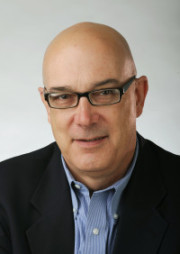While recently sharing a seafood dinner, three of my old high school friends and I also shared an inventory of our medical conditions.
“Old’’ is a relative term. We’re in our early 60s. And our annual reunion is a golf vacation in Florida, so we’re mobile enough to get around the links (and send too many Titleists splashing into lagoons).
After some initial chitchat, our dinner conversation eventually got around to health.
We’re members of the generation born in the aftermath of World War II — the so-called baby boomers. But we haven’t been babies for a long time. And the older we get, the more the talk among us friends veers into what’s ailing us. One of our foursome is a physician, so he can often fill in the blanks of our knowledge.
First off, none of us has a perfectly functioning body. Few people at our age have everything in good working order.
One of my friends is in the early stages of Parkinson’s disease. Another has atrial fibrillation, a heart condition he controls with medication. A third has high blood pressure. And I have occasional lower back problems, and take pills for cholesterol and thyroid conditions.
We’re all intent on maximizing our relative health for as long as we can.
One concern we share: None of us wants to retire too early and sit around on a sofa all day, remote control in hand. We understand how physical activity and mental stimulation are important to health.
So getting back home to Atlanta, I wanted to talk to an expert on how we boomers can remain relatively functional for as long as possible.
An Emory geriatrician, Dr. Jonathan Flacker, offered some pointers.
His patients are 65 and older, with many in their 80s, so we’re catching him before we reach the sweet spot of his practice.
Nevertheless, Flacker says, people in their 60s and older care less about regular life expectancy than about “active life expectancy.” That’s the average number of years remaining in which a person can live independently, or free from significant disability.
One major challenge, Flacker says, is “not letting your chronic conditions interfere with your overall health.’’
Here are some guidelines he mentions for aging baby boomers who want to maintain their health as long as they can:
Screenings and Medicare
Regular medical screenings can catch health problems before they worsen. Tests for breast, colon and cervical cancer are effective, Flacker notes. And having your blood pressure and cholesterol checked regularly is important.
Flacker points out that Medicare offers a free physical exam when people turn 65, and annual wellness visits after that. “It surprises me how few people take advantage of that,’’ he says.
Older folks should also get regular vaccinations such as flu shots, he adds.
Lifestyle
Your diet “doesn’t have to be particularly trendy or crazy,’’ Flacker says. People should eat a range of foods, and not overeat, he says.
Then there’s exercise. For people with back problems like mine, Flacker recommends finding an exercise program that’s physically doable. If you can’t run, try bicycling or water aerobics, he says.
Finding an exercise partner is beneficial because it helps keep both you and the partner on track, he says.
Coordinating care
This means making sure your doctors talk to each other, rather than letting you be treated in several different “silos” for different conditions.
If you have a heart condition, make sure that physician confers with your other doctors, he says. That way, for example, your medications don’t counteract each other, and the effectiveness of your overall care can improve.
Social engagement and support groups
Engaging with other people can boost physical and mental health as you age. “I almost don’t care what it is –- church clubs, bridge clubs . . .” Flacker says. “Doing any of that is better than sitting at home by yourself.’’
If you have a condition such as Parkinson’s or diabetes, you may want to find a support group that is specific to your disease. That way, you can share your experiences about your condition, Flacker says.
And retirees should find an organization where they can volunteer. “I think there’s a lot of wasted ‘people energy’ out there,’’ he says.
Caregiving
Two of my high school buddies have parents with health conditions of their own. (Of course, many people from my generation have already lost one or both parents.)
For people who directly care for parents, the burden can be huge. Caregivers for aged parents can have worse health than other people, Flacker says. “If you’re in a caregiver role, get as much help as you can,’’ such as through day programs or respite care, he says.
Attitude
Along with health challenges, people who are older are more likely to have to deal with difficult but inevitable life changes, such as the deaths of spouses or other loved ones.
“They are more likely to encounter stresses,’’ Flacker says.
And as people age, they can’t do some of the things they once enjoyed. “My mother-in law gave up skiing at age 75,’’ he notes.
So your attitude is important. Flacker says, “I see patients with 20 things wrong with them and they say, ‘Life’s great.’ And I see people with a hangnail and their world’s a disaster.’’
While dealing with stress and health problems, Flacker says, “you still need to do the best you can with what you’ve got.”
Psychological battles can be as important as physical battles, it would appear.
Now if we could only keep our golf balls out of the Florida waters . . .


